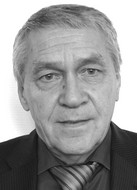Elite cross country skiers’ zonetime adaptation markers applicable in pre-season with jet lags and acclimatization periods
Фотографии:
ˑ:
PhD, Professor A.A. Grushin1
Dr.Med. E.R. Yashina2
Dr.Biol., Professor T.F. Abramova3
1Russian State University of Physical Education, Sports, Youth and Tourism (SCOLIPE), Moscow
2National Medical Research Center of Traumatology and Orthopedics named after N.N. Priorov, Ministry of Health of the Russian Federation, Moscow
3All-Russian Scientific Research Institute of Physical Culture and Sports, Moscow
The study analyzes benefits of the elite cross country skiers’ zonetime adaptation markers applicable in pre-season with jet lags. The study analyzed the elite cross country skiers’ (n=19) daily physical progress tests; plus the body anthropometric characteristics; autonomous nervous and cardiovascular system functionality tests; and biochemical adaptation markers. The study made it possible to find the highly informative zonetime adaptation markers including the pulse pressure; orthostasic blood pressure; free testosterone and cortisol and their ratios; total albumen, urea, magnesium, AST activity, glucose and insulin rates; plus self-rated determination for training. In case of the elite cross country skiers, the list may also include muscular mass, creatinine and calcium rates. The completion stage of the pre-season with a jet lag is recommended to be finalized with the prior acclimatization period taking 7-9 days. The acclimatization completion terms and adaptation markers reactivity rates are largely dependent on the sport specialty, background wellbeing and fitness rates; prime acclimatization and pre-season training design and management quality, intensity of competitive period; and total terms of prior acclimatization stage.
Keywords: zonetime adaptation, cross-country skiers, functional state, training process completion stage.
References
- Dobrovolskaya N. A., Vlasov G. V., Kuvshinchikov I. N., Shinshina S. I. Nekotorye osobennosti vremennoy adaptatsii sportsmenov pri transmeridialnykh pereletakh [Some features of zonetime adaptation of athletes under transmedial flights]. Pedagogika, psikhologiya i mediko-biologicheskie problemy fizicheskogo vospitaniya i sporta, 2009, no. 5, pp. 77–80.
- Ezhov S. N., Krivoshchekov S. G. Khronorezistentnost, bioritmy i funktsionalnye rezervy organizma v fazakh desinkhronoza pri vremennoy adaptatsii [Chronoresistance, biorhythms and bodily functional reserves in phases of desynchronosis during zonetime adaptation]. Byulleten SO RAMN, 2004, no. 4, P. 77.
- Iordanskaya, F. A. Muzhchina i zhenschina v sporte vyisshih dostizheniy. Problemy polovogo dimorfizma [Man and woman in elite sports. Problems of sexual dimorphism]. Moscow: Sovetskiy sport publ., 2012, 256 p.
- Kolesov A. I., Lents N. A., Razumovskiy E. A. Sorevnovatelnaya deyatelnost i podgotovka sportsmenov vysshey kvalifikatsii v razlichnykh prirodno-geograficheskikh usloviyakh [Competitive activity and training of elite athletes in various natural and geographical conditions]. Moscow, 2003, 293 p.
- Lentz N. A., Razumovskiy E. A. Vremennaya adaptatsiya, pogoda i rabotosposobnost kvalifitsirovannykh sportsmenov [Zonetime adaptation, weather and work capacity of skilled athletes]. Olimpiyskie igry v Atlante: pogoda, akklimatizatsiya i rabotosposobnost sportsmenov [Olympic Games in Atlanta: weather, acclimatization and work capacity of athletes]. Moscow: ROC publ., 1995, pp. 10–17.
- Meerson F. Z., Pshennikova M. G. Adaptatsiya k stressornym situatsiyam i fizicheskim nagruzkam [Adaptation to stressful situations and physical stress]. Moscow: Meditsina publ., 1988, 256 p., il.
- Osobennosti khronobiologicheskoy i klimatogeograficheskoy adaptatsii vysokokvalifitsirovannykh sportsmenov k usloviyam Rio-De-Zhaneyro s uchetom osobennostey vidov sporta [Sports-specific peculiarities of chronobiological and climatogeographic adaptation of elite athletes to conditions in Rio De Janeiro]. Moscow: Voskhod-A publ., 2016, 512 p.




 Журнал "THEORY AND PRACTICE
Журнал "THEORY AND PRACTICE